BUDE Refugee Support Group recently welcomed Mallory Carlson of the International Organisation for Migration to its recent meeting, shedding light on what Bude will need to do to prepare for the two Syrian families due to arrive in the upcoming months, writes Rosie Cripps.
Bude Refugee Support Group has recently been allocated with a Full Community Sponsorship Scheme, and is now asking Bude residents to pledge £5 a month for 20 months, resulting in a donation of £100 from each donator. The group said it needs at least 250 people from the town to commit to this. The money will pay for topping up housing, professional interpreters, and other things the council would usually pay for.
Co-ordinator of the group, Mary Whibley, said: “If people don’t want to pay £5 each, then maybe they could get together with a group of four or five people and put some money together to make up £5. We’ll need about 250 to 300 people to pledge to this, and in a town of around 10,000 people, we’re hoping that it’ll be quite easy to achieve.”
The group’s sponsorship is to raise money to welcome two Syrian refugee families to Bude, who are currently trying to escape the conflict in their home country. Mallory Carlson from the International Organisation for Migration (IOM) came along to their recent meeting on Friday, September 16 to give a presentation on what they could expect from the families, what the refugees are used to in their home country, and how the people of Bude could help make them feel at home on their arrival.
Mallory helped refugees with job searches in the USA, before moving to the UK to obtain a degree in refugee researches, and now works for the humanitarian organisation, IOM.
Before the conflict, the meeting heard Syria was a well-developed country with a strong education and health system in place, along with a high employment rate. Mallory said it is a very diverse and multi-cultural country, with Arabs making up the majority, but also with Catholic, Turkik, Armanians, Kurds and Levantine Christians included in the population.
In terms of clothing, Syrians living in the countryside would normally wear more traditional clothing, with women often wearing the hijab. In the city and more urban areas, it would be more common to find people walking around in more westernised, tailored clothing with their hair on display. However, they may refer to traditional clothing when attending Friday prayer.
Syrians celebrate many holidays during the year, including Christmas, Mother’s Day, Eid El-Fitr and Eid Al-Adha. Often, families from the countryside would visit family with sweets and partake in a big feast in their home, whereas in the city, families would meet for a meal at a restaurant to celebrate.
The meeting heard since the conflict began, 6.5-million people have been displaced in the country, and residents in communities have suffered losing electricity and a decreased amount of water. Additionally, 1.2-million houses have been damaged, meaning many families have had to seek refuge. Mallory added medication has also decreased, meaning acute and chronic medical needs are often left untreated, such as polio and measles.
Schools have been damaged or repurposed to be used as shelters, and the meeting heard unemployment and increased poverty is at an ‘all time high’. Many families are now living in an urban setting, where they can find themselves staying in substandard housing in overcrowded rooms; or in refugee camps, where there is a concentrated access to services, including hospitals and food supplies. During her presentation, Mallory showed a picture of a tiny concrete room, which she said was home to 17 people.
Mallory then explained that the next stage was resettlement, moving people from a second country — where they sought refuge — to a third country, where they would take up residency in the UK.
The UN Refugee Agency (UNHCR) interviews the refugees and ensures they meet certain criteria, including physical protection, medical needs, women and girls at risk and children at risk. This information is sent to the UK government, who either choose to accept or reject the case.
If their case is accepted, the family is referred to IOM, which carries out medical and cultural assessments, and the resettlement can begin.
IOM helps the families, of whom many have never seen let alone boarded a plane before, during their journey and what they might expect when arriving in the UK. They are helped through security and border control, as well as simple things such as how to use the toilet on the plane, how to stay hydrated and order food, how to keep their children entertained and how to stay safe during their journey. They are also helped with how to manage their expectations, with many having lived in large houses with many people, suddenly living in a small flat in the UK. They are advised on what not to bring with them, and are given education and employment information.
The families are then able to build up their knowledge, skills and attitudes, as well as their resources and social networks. The IOM also encourages them to work on British values, introducing topics such as gender equality, to create a sense of belonging and reducing the possibility of radicalism.
Mallory went on to explain that many refugees worry about cultural acceptance from rumours and news sources, and that the IOM helps them decide what is accurate when living in the UK.
Mallory welcomed questions from the group, and one gentleman was concerned that Bude will not have facilities for their cultural needs. Mary responded with information of the Bude Refugee Support Group’s core group, which is currently working towards providing services such as finances and teaching English for when the refugees arrive in Bude. She added that there is the possibility for the refugees to travel to Truro if they want to pray.
She said: “We already have Muslims in Bude, which shows true integration. Often, they like to pray in their back rooms if there isn’t a mosque in their town or city, but there is somewhere in Truro where they could travel to if they want to do so.”
Another member of the group added: “We are a society who has stepped forward and said we will help — who else will do it? We need to make sure we make them feel wanted and welcome.”
With the meeting hearing acceptance of refugees is ‘frustratingly slow’, the group was told that the refugees would be staying for five years. After that, they could decide to go back to their home country, or could choose to stay. Mary said: “They definitely see themselves as guests.”
Another member of the group said: “There is, within the town, a sense of sympathy, and when they arrive, I think we can build on that.”
Following Mallory’s departure, the group got together and discussed the progress they had made so far.
Rosemary Lee, who is in charge of the collection, said: “It’s going extremely well. People are becoming more and more generous, and it’s becoming more known, which is what I wanted.”
She went on to explain that all items donated are used, nothing is wasted. If clothing is too big, it is sent to charity shops. Tatty clothes are put in a ‘rag bag’ and sent to Calais, and food that cannot be used is sent to the food bank.
The sponsorship, which is the group’s main priority at present, will, if it successfully gets the commitment of 250 to 300 Bude residents, look after the two families for two years. During the Children in Need event at Budehaven School on November 18, the group will present the sponsorship to residents and locals and provide more information.
To find out more information about the collection, email Rosemary Lee on [email protected]. For further information on the group’s work, visit the Facebook page, Bude Welcomes Refugees.
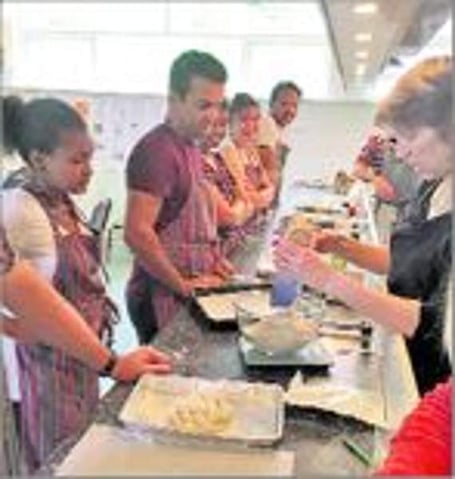
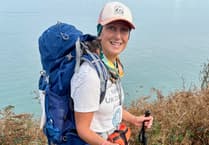
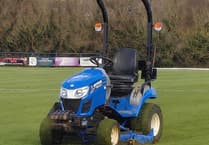
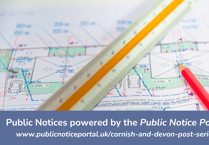
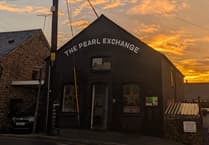
Comments
This article has no comments yet. Be the first to leave a comment.